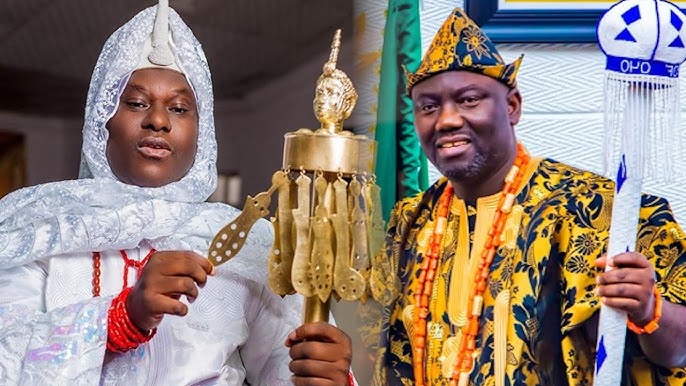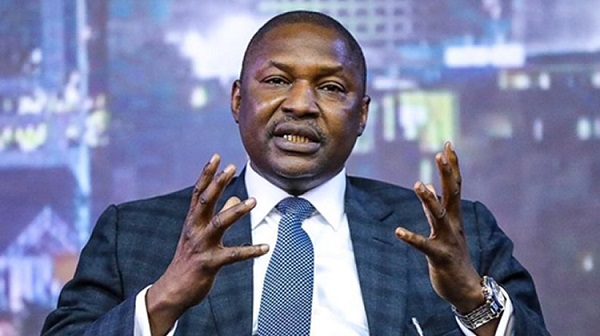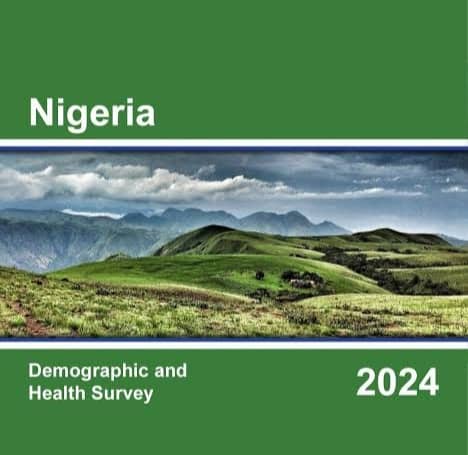News
Ooni, Benin monarch superior to Alaafin, says late Oba Sijuwade

The late Ooni of Ife, Oba Okunade Sijuwade, had before now asserted that his stool was superior to that of the Alaafin of Oyo.
The late monarch also said that even the Oba of Benin is greater than the prominent Oyo monarch in a viral old video that reminisces about the superiority claim between him and the then Alaafin, Oba Lamidi Adeyemi.
In the clip that hit the internet on Thursday, the late Ife monarch was seen explaining to his subjects and visitors in his palace that even the then-Nigeria governor, Sir Hugh Clifford and the Federal Gazette of 1904 backed his claims.
In 1924, during the Prince of Wales, Edward VIII’s visit to Clifford, he noted that the governor faulted Reverend Samuel Johnson’s book on Yoruba history as fake because it contradicted reality.
The late monarch said, “The Oba of Benin is superior to Alaafin. I will provide you with all the necessary pictures as proof; you can take them away. You can hear him (late Oba Adeyemi) saying Oranyan, he was wrong. Oranmiyan is the correct pronunciation. He was tricky; there was nothing like that.
“On [Samuel] Johnson’s book that you said, the Nigeria governor in 1924, when the Prince of Wales was visiting, the governor said Johnson’s book is fake. He said Johnson was an Oyonman who wrote a book to boost the ego of his people. He said it is fake. Yes, it is in the archives. I will provide supporting documents. Alaafin is nowhere around Ooni at all.
“A Federal Government Gazette of February 28, 1903, revealed that when the the Govenor of Nigeria came to invite Ooni who was my grandfather to settle the rifts among the kings fighting for the crown in Lagos. He wanted Ooni to come because in the Nigeria Council of Yorubaland, Ooni was the owner of the crown and the only legal one to speak on it. Ooni told the governor that none of his predecessors had ever travelled out their palace.”
Oba Sijuwade further narrated how the governor had to please his grandfather to settle the rift in Lagos, stressing that his acceptance brought many kings out of their palaces to honour the revered then-Ooni.
“The governor then asked what to do for Ooni to travel out of his palace. He(Ooni) said for every river to be crossed, a black cow must be sacrificed.
“The governor agreed to buy 1,000 cows. The governor then asked what other thing he wanted. Ooni said he would board a vehicle to Ede town, where the governor’s entourage would pick him up. The governor then promised to send his personal armour to pick him up instead.
“It was written in the Federal Gazette. All the kings from Asaba, Warri and every part of the country vacated their palaces to come see Ooni in Lagos.
“The governing colonial governor then wrote a gazette that even the Alaafin of Oyo is now living outside the walls of his palace. They didn’t return until it was announced that Ooni was back in his palace. Have you ever seen Ooni sit behind Alaafin in all the old pictures I’m showing to you?”
The PUNCH reports that the Alaafin of Oyo, Oba Akeem Owoade, on Thursday, declared that the British had signed a treaty with Alaafin recognising him as the superior head of the Yoruba Nation.
This followed a fresh crisis between the Alaafin and Ooni of Ife, Oba Enitan Ogunwusi, after the Ooni conferred the title of Okanlomo of Yorubaland on a businessman, Dotun Sanusi, during the unveiling of 2geda media networking platform, at Ilaji Hotel, Ibadan, at the weekend.
Condemning Ooni’s action on Monday, Alaafin had, in a statement by his Director of Media, Bode Durojaye, given the Ife monarch a 48-hour ultimatum to withdraw the chieftaincy title or face “the consequences”.
The Ooni has, however, kept mum on the matter, even as the ultimatum expired on Wednesday.
In a fresh statement by his media aide, Durojaye, on Thursday, the Alaafin went historical, asserting that he remains the foremost monarch in Yoruba land.
Alaafin said, “Oyo simply rose to prominence through wealth gained from trade and its military skills. It was the largest West African empire, the most important and authoritative of all the early Yoruba principalities. More so, the British, as it was in their tradition, recognised lineage as meaningful supremacy and legitimacy, preferring to sign the Treaty of Cessation with the Alaafin as the Superior Head of the Yoruba Nation.
“Alaafin has sworn to his ancestors to defend and add glamour to Yoruba tradition; he would never be in a supremacy battle with any king.”
Adekunle Sulaimon
Adekunle, a fellow of Data and Solutions Journalism, has over four years experience with competences in data journalism and investigations.
News
Washington attack: US orders review of all Green Cards from 19 countries

The United States government has announced a sweeping review of all Green Cards issued to citizens of 19 countries, following Wednesday’s attack on National Guard troops in Washington, D.C.
The Trump administration disclosed the move on Thursday after authorities identified the detained suspect as a 29-year-old Afghan national who had previously worked with American forces in Afghanistan.
According to AfghanEvac, an organisation involved in the resettlement of Afghans after the 2021 Taliban takeover, the suspect was granted asylum in April 2025, not permanent residency.
In a statement on X, the Director of the US Citizenship and Immigration Services (USCIS), Joseph Edlow, said, “I have directed a full-scale, rigorous re-examination of every Green Card for every alien from every country of concern.”
The order had earlier banned nearly all nationals from 12 of those countries, including Afghanistan, from entering the United States.
Here is a full list of countries under the travel ban:
Countries with Full Travel Ban (12)
1. Afghanistan
2. Myanmar
3. Chad
4. Congo-Brazzaville
5. Equatorial Guinea
6. Eritrea
7. Haiti
8. Iran
9. Libya
10. Somalia
11. Sudan
12. Yemen
Countries with Partial Ban (7)
1. Burundi
2. Cuba
3. Laos
4. Sierra Leone
5. Togo
6. Turkmenistan
7. Venezuela
News
EFCC summons ex-AGF Malami

The Economic and Financial Crimes Commission (EFCC) has invited former Attorney-General of the Federation and Minister of Justice, Abubakar Malami, for questioning.
Malami served as Attorney-General and Minister of Justice from 2015 to 2023 under former President Muhammadu Buhari.
Malami announced the development on his Facebook page on Friday, confirming that he had received a formal invitation from the anti-graft agency.
“I would like to inform my family and friends that I have been summoned by the EFCC to provide clarification on certain matters, and as a law-abiding and patriotic citizen, I am determined to honour this invitation without any hesitation,” he wrote.
The former minister reiterated his commitment to the principles of honesty, integrity, and accountability, which he said guided his years in public service.
“I believe in the importance of honesty, integrity, and accountability in governance; these are principles that I have long supported and upheld over the years of my public service,” he added.
Malami also stated that he would keep Nigerians informed of any developments that may arise from the invitation.
News
NDHS: Nigerian regions show huge disparity in spousal earnings

• South South most equal
By Grace Edet
New data from the 2024 Nigeria Demographic and Health Survey (NDHS) has revealed major regional disparities in spousal earnings, showing that most Nigerian wives aged 15–49 earn less than their husbands, despite growing pockets of income equality across the country.
According to figures shared by Statisense on Tuesday, the trend is most pronounced in the North-West, where 941 in 1,000 wives earn less than their husbands, while only 29 in 1,000 earn more. The region also recorded the lowest rate of non-earning husbands, with just 7 in 1,000 women reporting partners with no income.
In contrast, the South South posted the strongest levels of income parity. The region recorded 113 in 1,000 wives earning the same as their husbands, the highest nationwide. It also had the largest share of women earning more than their spouses at 61 in 1,000.
The North East also showed notable shifts. While 30 in 1,000 wives out-earn their husbands, one of the highest shares in the country, the region still reported that 888 in 1,000 women earn less, reflecting wide inequality despite emerging improvements.
The North Central displayed more balanced figures, with 46 in 1,000 women earning more, and 65 in 1,000 earning equally, though 848 in 1,000 wives still fall below their husbands’ income levels.
In the South East, income gaps remain significant but show signs of narrowing. The data shows 57 in 1,000 wives earn more, 82 in 1,000 earn equally, while 775 in 1,000 still earn less than their husbands.
For the South West, 45 in 1,000 wives earn more, and 75 in 1,000 earn the same, but 824 in 1,000 wives still earn below their husbands’ earnings. Only 11 in 1,000 husbands reported having no income.
The NDHS 2024 findings highlight a consistent national pattern: while traditional income structures remain strong, especially in northern regions, the southern zones, particularly the South South, are showing faster shifts toward income equality within households.
Experts say the trend reflects broader economic realities, including rising female participation in formal work, regional differences in literacy levels, and contrasting socio-cultural expectations about household roles.
The full survey continues to shape policy discussions on women’s economic empowerment, labour participation, and regional development priorities.
-

 Art & Life9 years ago
Art & Life9 years agoThese ’90s fashion trends are making a comeback in 2017
-

 Entertainment9 years ago
Entertainment9 years agoThe final 6 ‘Game of Thrones’ episodes might feel like a full season
-

 Art & Life9 years ago
Art & Life9 years agoAccording to Dior Couture, this taboo fashion accessory is back
-

 Business9 years ago
Business9 years agoThe 9 worst mistakes you can ever make at work
-

 Entertainment9 years ago
Entertainment9 years agoThe old and New Edition cast comes together to perform
-

 Sports9 years ago
Sports9 years agoPhillies’ Aaron Altherr makes mind-boggling barehanded play
-

 Entertainment9 years ago
Entertainment9 years agoMod turns ‘Counter-Strike’ into a ‘Tekken’ clone with fighting chickens
-

 Entertainment9 years ago
Entertainment9 years agoDisney’s live-action Aladdin finally finds its stars





